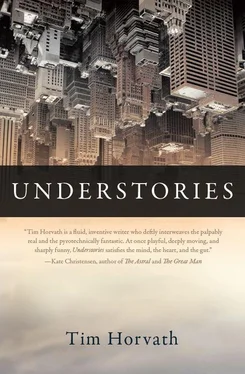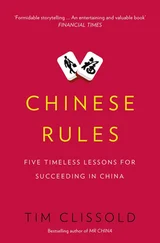But I couldn’t believe Edmund was sitting in my office telling me this; he’d practically lived there these past two years. As my research assistant, he had access to hundreds of pages that, thankfully, no one else will ever see. But he did more than track down references — he filled the margins with comments, netting fresh references from the Sargasso of mediocre scholarship. He’d spent hours in the scuffed, stained armchair, its foamy entrails pouring out as we talked about Pliny and Rembrandt and impossible objects and life, too, his ups and downs with his girlfriend, his mother’s battle with depression.
It was little wonder he was destined to go with Lew.

The meeting feels like a courtroom except without any designation of who’s on what side. Empty chairs flank me. Rasmussen presides in gray vestments, sport coat and striped shirt and white tie with what look like spouting little blue whales. Lew sprawls, too-long legs jutting awkwardly till they’re practically in the center of the room, Vadrais on one side and Edmund on the other, and then there’s Amos Duffy from Mathematics, and Sue Gessen, a dean with whom he’s chummy, and I wave to her. Next to them are trustees I only know from meetings like this one — though there’s not been one exactly like this one. Next is Kuperman, and, sitting right next to him, Dahlia. The president looks jovial, or looks as if he’s straining toward some Platonic form of joviality, and everyone else appears overly severe. Even Kuperman looks like he’s been cast in a serious role in one of his movies; I didn’t know he had it in him.
Rasmussen starts things off with a toothy smile. “We’re gathered because we understand that you, Professor Dorris, have developed an idea here at the university that just might benefit all of us. So, essentially, seeing ourselves as pioneers of the twenty-first century, looking to ride out these tough times, we’d like to know how we can help you and help ourselves and. . help our students.”
His voice drones on and I pluck some wasabi peas out of the bag, the few that remain, loading them on my tongue like bullets. Then I am drawn to tug and pull at my eyelid with my nonwasabi hand. This makes his image double and appear to lean, like some aspect of him is bowing or trying to get out, and the tilted version exhibits a deference so foreign to his character that I can’t help but find it amusing. I send him back and forth like this. The transformation continues, the head expanding and reshaping itself, tendrils coiling outward till he’s no longer a balding bureaucrat, but a sort of shadow puppet villain in a demonic headdress, hinged at the joints, and I start to hear strains of gamelan as he makes his false-friendly pitch. A Demon-king.
Vadrais stands, now also swinging at hinges, stiffly made. “Mr. Dorris has developed certain ideas and, in particular, an algorithm that does promise to be lucrative. However, the terms of the offer you have made him are not sufficient to persuade him to authorize the school to. .”
And then things start getting ugly. The Demon-king bristles. Pulling back, he increases in size till he towers over the entire room, a grim Gargantua. I think then that he might windmill his arms or soar through the air or double over into an elephant and invite the trustees to mount him and ride on his back into battle. His accusations fly like a downward volley of arrows at Vadrais and Lew, some sticking in the wall, some in the table, some hanging, tips embedded in Vadrais’s clipboard. I hear the words “Homeland” and “Security” and murmurs sweep like electric current through the room. Vadrais comes to his feet, wielding his hand like a scimitar and throwing out countercharges—“coercion” and “neglect” and “red tape” off his lips like throwing stars. Again and again they come at each other, sometimes landing a clear hit, at others leaving us to guess from thrust velocity and the ensuing shudder. My hand is no longer on my eyelid; things just look this way.
A trustee jumps into the fray. “Let me be clear about this.” He reads off a sheaf of papers. “There were research grants filed through the school? There was a sabbatical, no? In two thousand and. .”
At some point I realize that it’s me he’s addressing, and I nod, since what he says is beyond dispute.
Now the Demon-king whirls to address me. I almost want him to appear paper-thin, as shadow puppets do in the instant they are reversing direction, the instant when the illusion fails. “My understanding is that the department is coming up for review, along with every other expense on campus. Times are tough. We think Umbrology would be much more likely to get funding if, as is the case here, tangible benefits could be pointed to.”
Vadrais jumps in. “For the record, we don’t think that the university necessarily has Lew’s best interest at heart.”
The Demon-king nods. “Maybe Glenn can speak to the integrity of the school. He’s been here longer than. .” He looks around. “Well, let’s just say he’s an institution at this institution.” He chuckles.
The whole room is watching me and waiting. I see Kuperman, Dahlia, jobs hanging in the balance. Dahlia’s, at least. But before I can answer, Vadrais jumps in again. “Lew’s researched this, thanks in part to a very talented student of his who has developed a plan for a start-up.” He doesn’t gesture to Edmund, but we all know whom he’s referring to. “Dr. Dorris believes the private sector is where he can make what he is rightfully entitled to. He has interested investors.”
For some reason my gaze is drawn to Kuperman, and I catch the slight smile percolating over his face, the knowing glance he shoots Dahlia, and know exactly whose connections were used to get these investors. The expression is so subtle it would be hard to convey in shadow theater, exactly the sort of thing that makes it an art.
The look changes nothing. What I say is exactly what I would’ve said anyway. “Dr. Rasmussen, I’m afraid I agree with Mr. Vadrais. I don’t think it is very likely that the school has Lew’s best interests in mind.”

Afterward, there is the brief chaos that ensues when a jury pronounces guilt or innocence, the tumble on one side or the other of the high wire of fate. Formalities are discussed, the school not abnegating its pro forma right to sue, to which Mr. Vadrais only says, “Of course.” And then order returns and we are academics who will sit together at graduation in a matter of weeks. In the hallway, Lew comes up to me, shakes my hand, and thanks me. “Glad you understand, Glenn,” he says, adding, “You always supported me.” Edmund is nowhere to be found.

Later that week, I stand in my driveway watching a total lunar eclipse, one of the most dramatic instances of shadow imaginable. Most shadows happen in black and white. We live in a chromatic world; umbrologists can’t compete. If shadows came in a lavish array, if they suddenly took on their casters’ hues, I might be a rock star (think Strato-). As it is, I’m more like an erhu plucker from northern China, consoling myself with chilly, two-stringed beauty. Not that I would choose to go electric — I’m merely stating a fact about the world.
And another: Not infrequently, shadows do flirt with color, this being one. Because of how the moon moves through Earth’s shadow, coupled with the light-filtering effects of Earth’s atmosphere, the moon appears as bloodred as Mars. The cold metal of my car’s hood yields a bit as I lie back. I want to shout through the neighborhood, pound on doors — rouse the mesmerized viewers of Lost (are they any less lost than the characters on the show?) and the compulsive checkers of email.
Читать дальше













